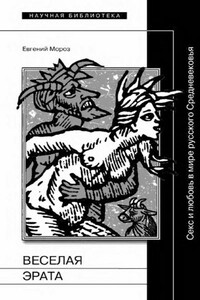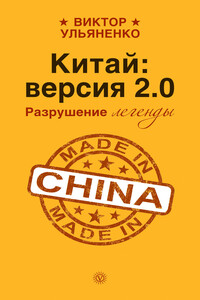Деловые приемы и встречи на английском: визиты, сотрудничество и профессиональные контакты - [14]
13. I’m afraid I’ve spilt some wine.
15. The bread is stale.
2. The wine’s chilled.
4. It’s too salty.
6. It’s overcooked.
8. It’s burnt.
10.1 think we’ve been overcharged. 12. I’m afraid we’re fully booked.
14.1 don’t like my meat rare.
16.1 ordered my meal half an hour
ago!
17. There’s not enough sauce.
a) This bill looks very expensive.
b) This isn’t cooked enough.
c) Rather heavy-handed with the salt!
d) Looks like there’s no room for us.
e) Bit short on the sauce, don’t you think?
f) Here we are, sir, one steak medium, one well cooked!
g) Good, a nice cool white wine.
h) There’s rather a mess on the table.
i) I don’t remember ordering snails!
j) This has been in the cooking pot for a very long time!
k) The temperature of this plate would be better for ice cream!
l) This looks like it’s been sitting too long on a barbecue.
m) This drink tastes like vinegar.
n) It’s rather a long wait.
o) There are no bubbles in this water.
p) Oh dear - tipsy again! (You have drunk too much!)
q) The bread is rather hard.
What a conversation.
1.
И.
13.
4.
>у 5. Щ. >(<7.
Joe: Good idea, with rice and green beans...
Waiter: Here you are, sir. I’m afraid we don’t take credit cards. You can pay cash or by cheque.
Joe: Yes, of course. Could you pass the bread?...
Charles: Well, shall we go to the “Fish and Frog”, that new French restaurant?
Joe: Can you recommend anything?
Charles: By cheque, thank you. Joe, is service included?
Charles: How about an Indian meal?
Whiter: It’s a kind of pate — rather rich. It comes with chips and a side salad.
Joe: No, it isn’t. You’ll have to leave a tip.
Joe: I’m afraid I don’t really like Indian food.
Joe: Oh dear! This is too salty!
Charles: Waiter, could you bring us the menu, please.
Charles: That would be lovely.
Charles: Right, let’s go. We can square up later.
Charles: Joe, could I have some water?
Charles: I’m told the meat is very good. Waiter, what is in the “Steak Solution”?
Charles: Here you are. Let’s eat up or we’ll miss the film...
Joe: What a good idea! I do love fish....
Chaftes: My steak is overcooked! Waiter, could you come here, please? I’m afraid...
Waiter: It’s made with rump steak and foie gras.
Joe: That was delicious.
Charles: I don’t know if you’ll like that, Joe. Why don’t you try the fish?
Charles: I’m glad you liked it. Waiter, could we have the bill, please? Waiter: I’m sorry, sir. I’ll go and have a word with the chef...
Joe: What exactly is “foie gras”?
Waiter: Can I take your order now?
Joe: Let’s have a drink while we look. How about some beer?
Joe: Next time it’ll be on me.
Did I put ту foot in it?
(or what you should and
shouldn't do!)
As if you needed this as well on top of a heavy day’s work! Your boss has missed his plane and has rung and asked you to take his guests (including one or two women) out to lunch. This is the first time, and the guests in question have a reputation for not being the easiest of customers! On top of which, nothing has been organized in advance!
First, be careful in your choice of restaurant — if you choose something too smart, your guest will feel ill-at-ease and will not be able to relax during the meal. Pay attention also to the person’s nationality — picking a fast-food restaurant for a French visitor will not be appreciated any more than taking a Swede out for a long alcoholic lunch. If possible, go to a restaurant where you are well-known — the service and the smiles will make being a regular customer worthwhile.
When you arrive, make sure that you sit your guest where he / she can look at the restaurant rather than the wall, and that the table is in a quiet comer (not just in front of the service door, though!).
Help your guest choose what they want to eat — the easiest solution is often a local speciality although not all English people will appreciate snails or frog’s legs! Avoid choosing things which are awkward to eat such as spaghetti or using chopsticks — it can be embarrassing for the other person even if you are a dab hand at it! Suggest a suitable bottle of wine but if you know nothing, ask the wine waiter for his advice rather than serving a very sweet white wine with a steak. If your guest refuses wine, don’t forget they may want something else instead, a glass of beer for example. Making small talk can be hard work if you hit a touchy subject, so avoid religion, politics and personal financed business lunch is a good opportunity to relax and get to know your adversary, so take the time to take time off. It is usually better to keep the business side of things to the end of the meal, or for once you get back to the office.
If it is not clear from the beginning who is to pay (which it should be!), but it’s really up to you, there are one or two elegant solutions. The best is to come to an arrangement with the owner beforehand when you book your table — he can bill your company directly or discreetly pass you the bill. Otherwise you could nip out to pay during coffee (but you’ll have to leave your guest alone). If you decide to leave a tip, be generous and leave at least 10% — otherwise you’ll look a real scrooge (and that could be bad for the company image!). Above all -enjoy yourself as best as you can — your guest will be happy if you are!

Книга Евгения Мороза посвящена исследованию секса и эротики в повседневной жизни людей Древней Руси. Автор рассматривает обширный и разнообразный материал: епитимийники, берестяные грамоты, граффити, фольклорные и литературные тексты, записки иностранцев о России. Предложена новая интерпретация ряда фольклорных и литературных произведений.

Книга антрополога Ольги Дренды посвящена исследованию визуальной повседневности эпохи польской «перестройки». Взяв за основу концепцию хонтологии (hauntology, от haunt – призрак и ontology – онтология), Ольга коллекционирует приметы ушедшего времени, от уличной моды до дизайна кассет из видеопроката, попутно очищая воспоминания своих респондентов как от ностальгического приукрашивания, так и от наслоений более позднего опыта, искажающих первоначальные образы. В основу книги легли интервью, записанные со свидетелями развала ПНР, а также богатый фотоархив, частично воспроизведенный в настоящем издании.

Перед Вами – сборник статей, посвящённых Русскому национальному движению – научное исследование, проведённое учёным, писателем, публицистом, социологом и политологом Александром Никитичем СЕВАСТЬЯНОВЫМ, выдвинувшимся за последние пятнадцать лет на роль главного выразителя и пропагандиста Русской национальной идеи. Для широкого круга читателей. НАУЧНОЕ ИЗДАНИЕ Рекомендовано для факультативного изучения студентам всех гуманитарных вузов Российской Федерации и стран СНГ.

Эти заметки родились из размышлений над романом Леонида Леонова «Дорога на океан». Цель всего этого беглого обзора — продемонстрировать, что роман тридцатых годов приобретает глубину и становится интересным событием мысли, если рассматривать его в верной генеалогической перспективе. Роман Леонова «Дорога на Океан» в свете предпринятого исторического экскурса становится крайне интересной и оригинальной вехой в спорах о путях таксономизации человеческого присутствия средствами русского семиозиса. .

Китай все чаще упоминается в новостях, разговорах и анекдотах — интерес к стране растет с каждым днем. Какова же она, Поднебесная XXI века? Каковы особенности психологии и поведения ее жителей? Какими должны быть этика и тактика построения успешных взаимоотношений? Что делать, если вы в Китае или если китаец — ваш гость?Новая книга Виктора Ульяненко, специалиста по Китаю с более чем двадцатилетним стажем, продолжает и развивает тему Поднебесной, которой посвящены и предыдущие произведения автора («Китайская цивилизация как она есть» и «Шокирующий Китай»).

Д.и.н. Владимир Рафаилович Кабо — этнограф и историк первобытного общества, первобытной культуры и религии, специалист по истории и культуре аборигенов Австралии.